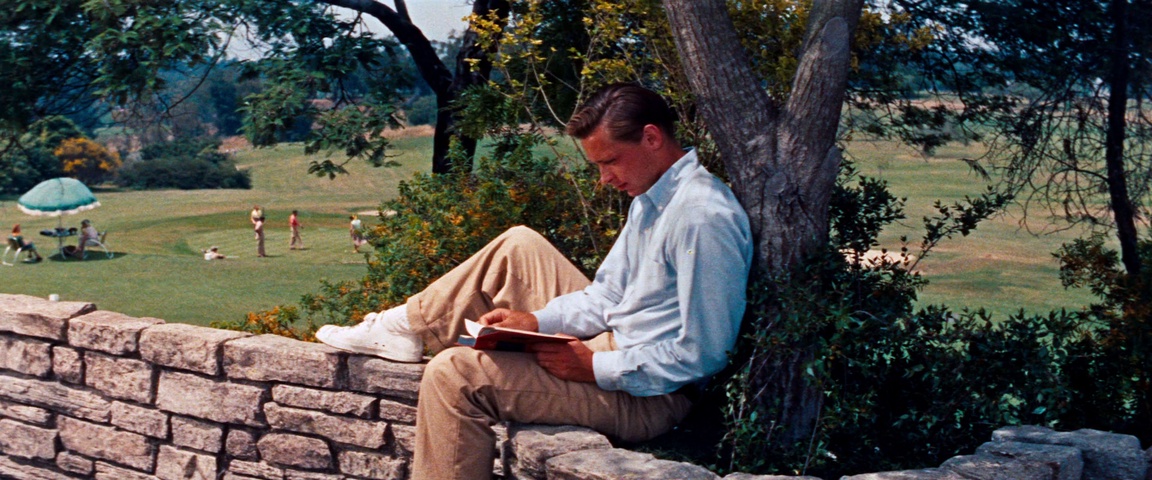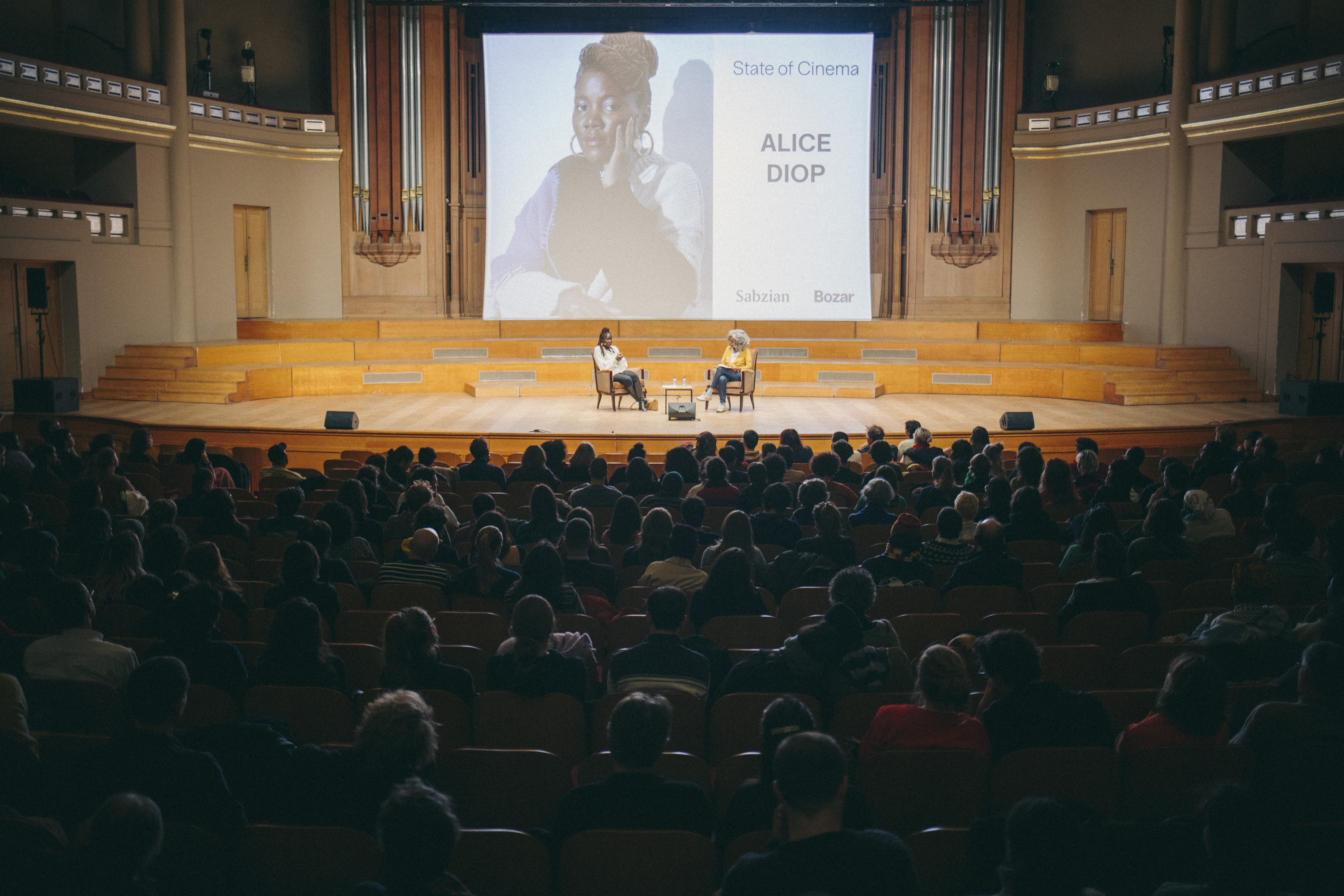Summer Reader
Before we slip into our summer break, we offer you an overview of the texts we have published over the past year that hopefully have a chance of ending up on your summer reading list.

“There is a rightness, an inner consistency, and an absence of moral hesitation that make Visconti’s films breathtakingly modern,” writes Dirk Lauwaert in one of the first articles we published last September. The article on Conversation Piece by Luchino Visconti, accompanied by pieces on Oliver Stone’s Natural Born Killers and Bernardo Bertolucci’s Il conformista, was part of the ever-expanding collection of re-published texts by Belgian critic Dirk Lauwaert on Sabzian, conceived in collaboration with and supported by LUCA School of Arts. More articles by Lauwaert followed in October and November, covering topics from François Truffaut to Spike Lee, concluding the series. A full overview of Lauwaert’s texts can be found on his Author Page.
Also very prominent this year was the oeuvre of Chantal Akerman. The last few years have been of utmost importance for the legacy of the Belgian filmmaker, and 2024 was no different. Akerman’s work was the focus of a full retrospective at CINEMATEK and a large exhibition at Bozar, both in Brussels. To support this endeavor, Sabzian collaborated with the Chantal Akerman Foundation to publish a new series of articles and translations dedicated to her filmwork. “I was in Brussels, I didn’t like cinema at all, I thought it was for idiots, all they took me to see was Mickey Mouse or things like that... and then I saw Pierrot le fou and I had the impression that it spoke of our times, of what I felt,” Akerman writes in the first part of a ‘Bio-filmography’ written by Jacqueline Aubenas, which we published early in March. The second part, written and compiled by Gerard-Jan Claes and Tillo Huygelen, followed in June. To celebrate the start of the retrospective and the exhibition, a trilingual collection also appeared that compiled all existing texts on Akerman’s work on Sabzian. Later additions can be browsed through there!
Several other collaborations marked this year as well, including with Danish filmmagazine Balthazar and Courtisane. The first coincided with another major retrospective at CINEMATEK, honoring the work of Jean-Marie Straub & Danièlle Huillet. Together with Balthazar, Sabzian published a comprehensive collection on their work, including a full annotated filmography. With Courtisane, a collaboration was set up around the programme ‘We Have Long Been Silent’, curated by Kristofer Woods for the last edition of the Courtisane Festival. To contextualise the programme, we published interviews with Helga Reidemeister, Ula Stöckl, and Cristina Perincioli. Finally, we published two extensive interviews with Trinh T. Minh-ha and Pedro Costa to mark the start of the festival. The first interview was conducted in the context of the Courtisane Festival 2023 with head programmer Stoffel Debuysere. The latter interview was conducted by Flavia Dima in Bucharest after a screening of Costa’s latest film, As Filhas do Fogo [The Daughters of Fire] (2023), at the Bucharest International Experimental Film Festival (BIEFF). At the Courtisane festival it was performed as a stage production.

As is tradition by now, Sabzian closes the year with a State of Cinema. For six years now, Sabzian has asked a guest to write a State of Cinema article, a text that holds cinema up to the light, an invitation to reflect on what cinema means, could mean, or should mean today. In December, we were very proud to welcome French filmmaker Alice Diop to write and deliver a speech. “It’s commonly agreed that there is no one cinema,” she said during her speech. “Or perhaps it’s better to say that the cinema that most interests me is one that is made every day far from the blinding light of centres of power, far from the places where laws are laid down, and where people sometimes claim to know what must be said and done or how it should be said and done.” To exemplify her statement, Diop chose the film Sambizanga (1972) by Sarah Maldoror to accompany her address. You can re-read the text here (in Dutch, French, and English).
More events were held throughout the year under the umbrella of our regular Milestones series, a series of stand-alone screenings in Belgium of film-history milestones, reference works, or landmarks – films that focus on aesthetic or political issues and stimulate debate and reflection. The series counted five events this year! We screened Screening Room: Robert Breer (Robert Gardner, 1976), Winter adé (Helke Misselwitz, 1989), and No quarto da Vanda [In Vanda’s Room] (Pedro Costa, 2000) in 2023, and Le fond de l’air est rouge (Chris Marker, 1977) and Windschaduw (Frans van de Staak, 1986) in 2024. Highlights include a transcription of the conversation between Robert Gardner and Robert Breer on Screening Room, an interview by Cyril Neyrat with Pedro Costa on In Vanda’s Room with collages by Andy Rector, João Bénard da Costa’s text on In Vanda’s Room, and a short text by Johan van der Keuken on Windschaduw.
Some evenings were organised in tandem with other organisations and proved to be singular moments each time. In February, Bozar, Avila, and Sabzian presented a unique cinema concert where pianist Seppe Gebruers accompanied Charles Dekeukeleire's avant-garde masterpiece Histoire de détective (1929) live on two grand pianos. For the occasion, Dekeukeleire’s manifesto ‘Toward a Liberation of Cinema’ was translated into French and English, published on our website, and distributed as a trilingual booklet on the evening of the screening. Alongside the manifesto, we also republished Kristin Thompson’s seminal introduction on Dekeukeleire’s work, a text by André Cauvin on Histoire de détective, and an early interview with Dekeukeleire (in Dutch). Soon after, we screened Victor Erice’s El sol del membrillo [The Dream of Light] on in KASKcinema, together with the University of Ghent’s filmclub Film Plateau. To be rediscovered here: Jean-Philippe Tessé’s text on Erice’s cinema and an introduction by film historian Steven Jacobs.
Every year, Sabzian also offers a platform for contemporary voices in cinema. We published a variety of new articles and interviews that delve into modern filmmakers and their work. Nina de Vroome wrote about Wes Anderson’s Asteroid City (2023), Anton Jäger and Gerard-Jan Claes on Justine Triet’s Anatomie d’une chute, Florian Deroo on Ridley Scott’s Napoleon and Daniel Zamora’s recently wrote a piece on The Zone of Interest. In the Belgian context, we devoted attention to Bas Devos’ new film Here (2023), Sofie Benoot’s Apple Cider Vinegar and WTC A Never-ending Love Story (2023). Interviews with contemporary filmmakers include conversations with Heinz Emigholz, Antoinetta Angelidi and Rea Walldén, Eduardo Williams, Mattéo Eustachon, and sound designer Johnnie Burn.
One Day, A Film
In April, we launched a new section: Op een dag een film [One Day, A Film]. In this feature, a Sabzian editor takes a film outside and discovers cross-connections between cinema and life. The series started off with a contribution by Sabzian’s artistic director, Gerard-Jan Claes, who reflects on a person’s decision to leave in the midst of a screening of Martin Scorsese’s latest film, Killers of the Flower Moon. This year also saw three new entries in our Passage section. In this section, Sabzian invites film critics, authors, filmmakers, and spectators to send a text or fragment on cinema that left a lasting impression. Mónica Delgado, director of desistfilm, wrote about a text that Manny Farber wrote on Wavelength by Michael Snow. “When I read the American critic Manny Farber’s text about an indispensable experimental film, I noticed that there was something extraordinary. A way of adjectivizing that which seemed ungraspable after having seen it. It was not only a matter of translating an experience but of finding the exact material to transmit that which reverberates on the screen.” Other Passage entries this year included texts by Karel Pletinck and Mehdi Jahan.

